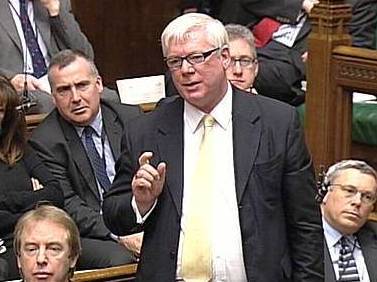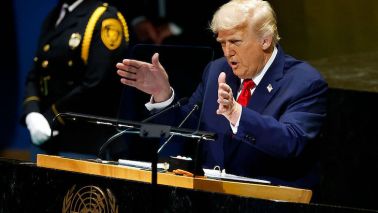 Now the Lib Dems are riding high in the polls, they attract greater scrutiny –
which, to put it mildly, they do not always stand up to. In this week’s Spectator, we look at what can be seen as the Lib Dem vice. They may not charge for duck houses, or mortgages. But they
do specialise in taking money intended for MPs expenses, and finding “innovative” ways of putting it into their war chest. Here is a hard example that may interest CoffeeHousers and it
stars Paul Rowen, whom Mr Clegg visited last week – and declared “has done a great job”. He certainly has: for filling the Lib Dem political machine with cash. These documents
were not designed to break the rules – just push them as far as possible, but it’s hardly the behaviour of the “most honest,” as Clegg has styled himself.
Now the Lib Dems are riding high in the polls, they attract greater scrutiny –
which, to put it mildly, they do not always stand up to. In this week’s Spectator, we look at what can be seen as the Lib Dem vice. They may not charge for duck houses, or mortgages. But they
do specialise in taking money intended for MPs expenses, and finding “innovative” ways of putting it into their war chest. Here is a hard example that may interest CoffeeHousers and it
stars Paul Rowen, whom Mr Clegg visited last week – and declared “has done a great job”. He certainly has: for filling the Lib Dem political machine with cash. These documents
were not designed to break the rules – just push them as far as possible, but it’s hardly the behaviour of the “most honest,” as Clegg has styled himself.
The Lib Dem modus operandi is explained in a leaked document which we at the The Spectator have got our hands on, and which is reported in today’s Mail. It reveals a disgraceful policy to minimise the costs of party political campaigning and burden the taxpayer with as much as possible. Hilary Stephenson, the Lib Dem election campaign director appointed by Mr Clegg, put her name to this remarkable March 2008 presentation to MPs advising them on how to squeeze every last drop from their allowances, pointing out that “planning will mean that this £125,000 of resource will be used to best effect”.
The game, Lib Dem MPs are told, is to exploit these “grey areas” in the Parliamentary expenses regime. It suggests that Liberal Democrat MPs look carefully at the “divide between party political campaigning and MP campaigning”. The “meaning of ‘proportionate and discreet’ use of the logo”, the “ban on party slogans/campaign material on photos” are all areas where “there is lots of scope … so be imaginative” the presentation explains.
The “Liberal Democrat Best Practice Manual,” which we have also seen, shows the same turn of thought in operation at LibDem HQ. Here, Lib Dem MPs are advised about how to “include material that does not meet fees office guidelines” – for instance, “appeals for money” by “paying for the report by other means and pay from the Incidental Expenses provision for advertising space”.
What that means, in practice, is sending out LibDem propaganda and charging the taxpayer to run a small ad in a corner advertising the MP’s constituency surgery. Nick Clegg himself employed this kind of strategy himself in 2006, charging taxpayers £300 for inserting adverts about his surgery into Liberal Democrat campaign literature.
But now we get to Exhibit A: PAUL ROWEN MP
In today’s Spectator, I give some examples of exactly how this tactic – to get the taxpayer to cough-up for campaigning – actually works, and focus on two LibDem MPs: Paul Rowen, a former party whip who sits on the Public Administration Committee, and John Leech, the LibDem transport spokesman. The evidence shows that taxpayers’ money has clearly been recycled through Rowen’s expense account and into his LibDem campaign. Here are the details.
Using an organisation called Rochdale Liberal Democrat Print Society, Rowen has claimed £6,000 for the purchase of part of an envelope-stuffing machine, as well as a whopping £700 to advertise his surgery in the newsletters printed on it. And this advertising revenue, of course, helped pay for the distribution of his campaign material – just as the party recommended.
Rowen has also cleverly charged taxpayers for advertising in the local cricket, football and rugby grounds – in one year we paid £1,493 for this privilege. How on earth can Rowen justify this spending to his constituents?
But his imaginative use of expenses goes much further. Since becoming an MP he has filed invoices to Parliamentary fees office for nearly £20,000 in rent for his constituency office on Drake Street in Rochdale. While every MP needs an office, what is interesting about Rowen’s is that it is owned by local Liberal Democrats through a shell company called Rochdale Reform Buildings Ltd. Before Rowen was an MP, this “company” gave him this office space for free. The moment he could claim rent on expenses, he did and the funds were paid to the shell company. The question I put to Rowen’s office earlier was simple: why is an office given for free one day, and then cost thousands of pounds of rent on the next day? Answer came there none.
What happens to this public money next is really interesting: in October 2005, RRB Ltd sends Rowen a cheque for £1,793 – an amount almost exactly equal to his quarterly rent. In fact,
the Rochdale Lib Dems are so blatant about the relationship between that public money and their campaigning income they even file accounts to the Electoral Commission in 2005 containing the
following statement:
“Income in the year increased as a result of part of our headquarters now being rented as an office suite to the new MP.”
Straight-forwardly enough, using the mechanism of expenses the public purse is funding the Lib Dem political campaign.
This is clearly unacceptable but gets worse. The 2004 Rochdale Lib Dem accounts, from the period before his election, show that the notional value of Rowen’s annual rent of the offices was just £660 per annum. As soon as he becomes an MP, these costs rise to thousands of pounds per annum. In the year after his election, taxpayers paid rent on Rowen’s office of £5215.07, in 06-07 we paid £5696.69 and a year later £7814.33. Curiously, after the expenses scandal broke Rowen seems no longer to have filed them.
While the duck houses could be blamed on lone MPs, the scams of using taxpayers money for party coffers has been encouraged throughout the Lib Dem party. Nick Clegg should be ashamed.






Comments